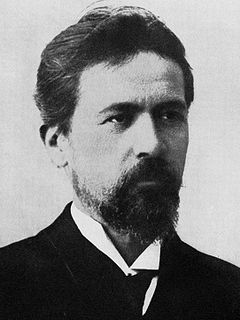
Last night I went to the 5th annual Yoni Ki Baat multicultural monologue show. This production showcases the talent of writers around campus that send in their work AND the performers of the Yoni Ki Baat group. The show focuses on woman empowerment, sexual liberation, cultural diversity, domestic violence, fighting false stereotypes, and the spectrum of relationships. The performers were very passionate and delicate with these pieces written by our own Michigan Wolverines. My fellow poetry slammers and I thoroughly enjoyed ourselves at this spoken word production
First of all I would like to give a shout out to the venue, Keene Theater in East Quad. I knew that I loved East Quad with all of its radicals, liberals, and all around extreme residents, and its interesting dietary options created exclusively for a large population of wolverine vegans, but this theater topped all of these assets. It was small, kind of cute, with an open stage that gave room for interpretation and audience inclusion. It reminded me of a Shakespeare theater, or if there had been no walls it would have been like a classic civilization theater from Ancient Greece. Sure maybe it’s not Epidaurus or Hill Auditorium, but the atmosphere that it provided was homey and warm. My slammer friends and I agreed that we will definitely be having an event there in the future.
Anyway, back to the reason you’re reading this, Yoni Ki Baat. Translated from Sanskrit as “talks of the vagina,” this show was created after the success of the “Vagina Monologues” as a place for creative expression for South Asian women. These young women honor and celebrate their yonis with poems like “Ramblings of a Hypochondriac Pussy Eatin’ Virgin,” “Bathroom Breakdown,” and “U-Hauls and Other Lesbian Stereotypes.” There were over 15 deep and entertaining pieces, so I would like to focus on my favorite three and let you imagine the power and creativity of the rest.
“My White Nepali Yoni,” written by Katie Hendricks and performed by Lindsay Walker, is the deeply heart wrenching story of a young girl fighting for her own identity. Born from Dutch missionaries, she was raised in southern Asia. Her family converted to Hindu and so she was raised as any young Indian girl would be. She identifies as Nepali, she practices Hindu, but the people she calls her own reject her because of her white skin. “This is my country, but where is my identity?” absolutely beautiful, and so sad. Can you imagine being raised as an ethnic group and then being rejected by them throughout the rest of your life? Being banned from the religious and cultural rights such as the treatment of your remains after death? I can’t.
“A Letter To My Aunt Flo,” written by Kelsey Trotta and performed by Ayesha Singh, was a wonderfully comic adventure through the period cycle of a young girl. Speaking directly to her “Aunt Flo” this young poet sounds her complaints about the physical and mental instabilities that this monthly relative inflicts upon her life. Ayesha had everyone in the crowd busting up when she described memories of these visits: her mothers description that made her believe that when she finally started having them that it would be beautiful and all “rainbows and unicorns,” her discovery at age 11 that they were not a fun experience, and multiple bouts of emotional havoc throughout life that this relative was responsible for. Ladies, I know this doesn’t mean much, but I feel for you. And for all of those jerks that dare to blame “that time of the month,” I’d like to see them try it!
And finally, “I Am Here,” written by Lia Wolock and performed by Sunny Shah with a short statement from each performer. This piece embodies culture, power, and emotion in one grand finale of expression. Young Sunny presents this piece about identity and physical as well as personal presence in a world that has been known for forgetting women in history and religion. Each performer takes on the identity of a great female while Sunny explains the significance of her own role as a woman and how it relates to her audience. It was very powerful, and sort of hard to explain unless you heard it yourself, but all the same, Amazing!
This was an excellent multicultural experience that I would definitely suggest to all students and faculty members. It was a great way to spend time with friends and feel powerful words wash over you like waves erasing your own worries. And most of all, it gave me a whole new respect for the Yoni!
As always,
This is Danny Fob: Artist and Art Reviewer
p.s. Sorry for the lack of pictures on this one. None were available and I don’t own a camera 🙁











